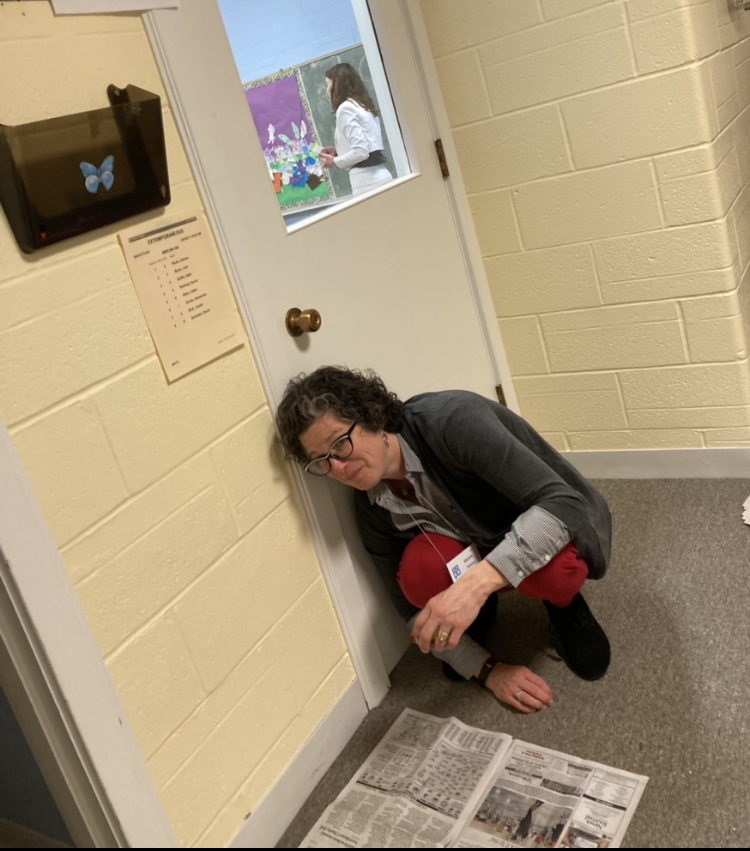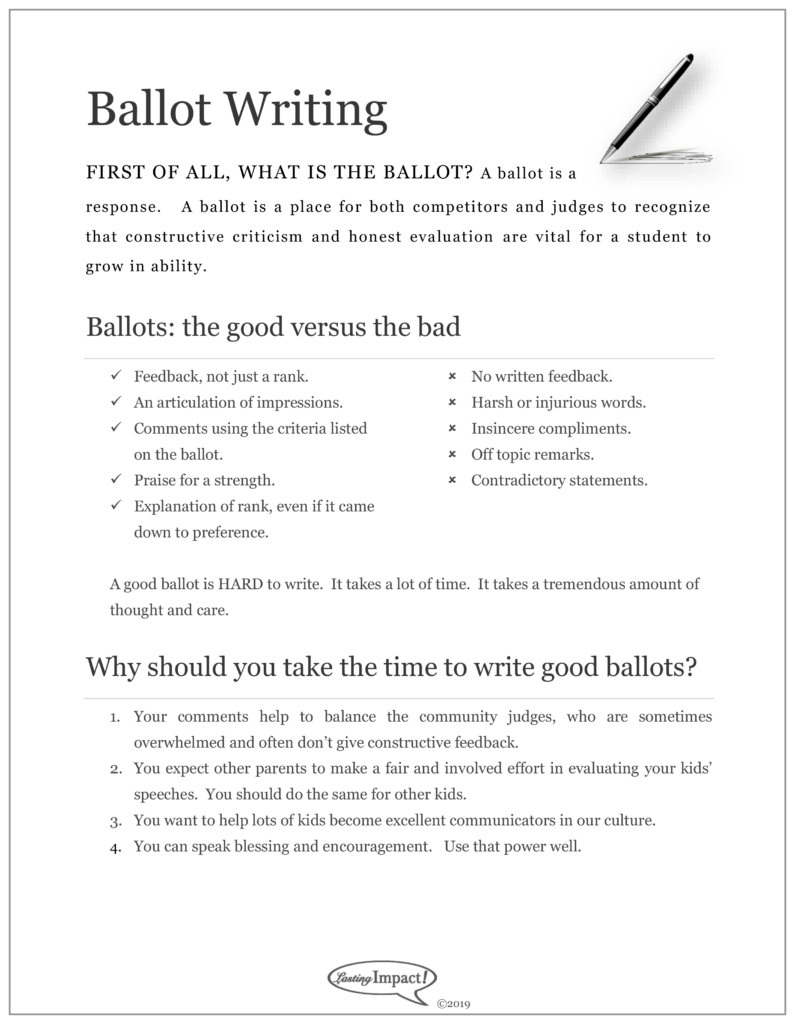
This totally may seem like an obvious post. But I will still write it… If nothing else to remind my fellow judges.
1. Turn off cell phones. Check, double check.Turning it to vibrate is not good enough. Do not be that distracting person.
2. Be attentive. There is nothing more disheartening to my speech friends when adult judges look bored. Please give them the respect you would want if you were speaking to a group of people. If you can sit towards front and center, that is helpful. It’s fine to take notes, but try to keep eyes up to speaker as much as possible.
3. Check the competitor names on your ballot to make sure that you have no conflict of interest. Depending on what organization you are judging for, conflicts could include your daughter’s best friend, someone you just had over for dinner, etc. Students can give speeches out of listed order, being familiar with your list of kids will be helpful. I like to take the names of the kids and write each of their names on their individual ballot to familiarize myself with the names. This is also a good self check to see if a name I initially missed is in my room.
4. Make sure all judges are present prior to beginning the round. Typically, there are 3 judges, but some debate rounds will have fewer.
5. You may ask a Communications Staff Member or hall monitor to check with tournament staff if you have questions.
6. Use time before the round begins to read rules. Knowing what you are about to see can give you a heads up.
7. Audience members may come and go. Try not to let that be a distraction.
8. Set aside personal bias and expertise and judge based on ballot criteria.
9. Be responsive! It’s ok to laugh, smile, even enjoy yourself! However; do not interrupt or question speakers about the content of their speech at any time.
10. Please use ink pen (not pencil) to fill out your ballot evaluation and rank sections.
11. Write initial impressions & key notes on ballots after each speaker. Remember your feedback is extremely valuable! Please be sure to give your opinion, as well as what the student could do to improve.
12. Stay in room until all competitors listed on the ballot have delivered their speech. Remember students may have multiple speeches they compete in. I personally, like the extra time to fill out more of my ballot between speakers. If it seems like you are waiting too long, you could locate the Comm. Staff or hall monitor to let them know.
13. Return to the Judge’s Hospitality area immediately after the last speaker to fully complete ballot with rankings and additional comments. This will help you locate where you will be turning in your ballot! If you forget… They will find you.
14. Record YOUR ranking (1 – 8) on the tabulation sheet. Remember- this is your opinion. If you have any penalties, a staff member will help you..
15. Please do not confer with other judges or students about your individual rank and comments, during or after the round. Your opinion is your own. Do not convince other judges, parents, or students how you feel about one’s speech. Remember until the tournament is over, your thoughts should be kept to yourself. Students will get all the feedback at the end of the tournament.
These Speech Tournaments could not take place with place without the judges. You are much appreciated! Thank you for judging!









